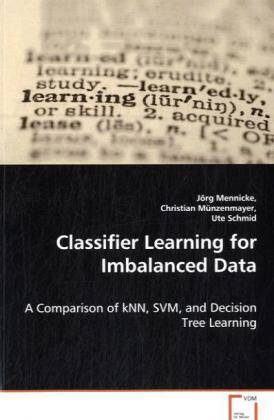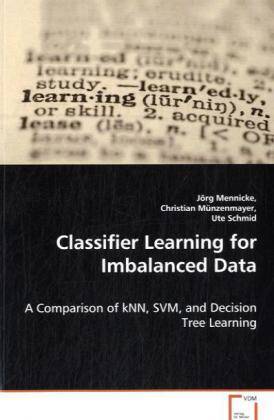
- Afhalen na 1 uur in een winkel met voorraad
- Gratis thuislevering in België vanaf € 30
- Ruim aanbod met 7 miljoen producten
- Afhalen na 1 uur in een winkel met voorraad
- Gratis thuislevering in België vanaf € 30
- Ruim aanbod met 7 miljoen producten
Zoeken
Classifier Learning for Imbalanced Data
Jörg Mennicke, Christian Münzenmayer, Ute Schmid
Paperback | Engels
€ 99,95
+ 199 punten
Omschrijving
This work discusses the theoretical abilities of three commonly used classifier learning methods and optimization techniques to cope with characteristics of real-world classification problems, more specifically varying misclassification costs, imbalanced data sets and varying degrees of hardness of class boundaries. From these discussions a universally applicable optimization framework is derived that successfully corrects the error-based inductive bias of classifier learning methods on image data within the domain of medical diagnosis. The framework was designed considering several points for improvement of common optimization techniques, such as the modification of the optimization procedure for inducer-specific parameters, the modification of input data by an arcing algorithm, and the combination of classifiers according to locally-adaptive, cost-sensitive voting schemes. The framework is designed to make the learning process cost-sensitive and to enforce more balanced misclassification costs between classes. Results on the evaluated domain are promising, while further improvements can be expected after some modifications to the framework.
Specificaties
Betrokkenen
- Auteur(s):
- Uitgeverij:
Inhoud
- Aantal bladzijden:
- 184
- Taal:
- Engels
Eigenschappen
- Productcode (EAN):
- 9783836492232
- Verschijningsdatum:
- 4/08/2008
- Uitvoering:
- Paperback
- Formaat:
- Trade paperback (VS)
- Afmetingen:
- 152 mm x 229 mm
- Gewicht:
- 254 g

Alleen bij Standaard Boekhandel
+ 199 punten op je klantenkaart van Standaard Boekhandel
Beoordelingen
We publiceren alleen reviews die voldoen aan de voorwaarden voor reviews. Bekijk onze voorwaarden voor reviews.







